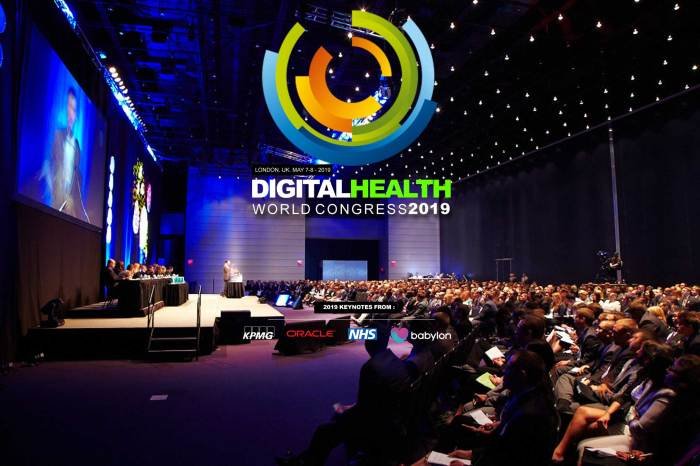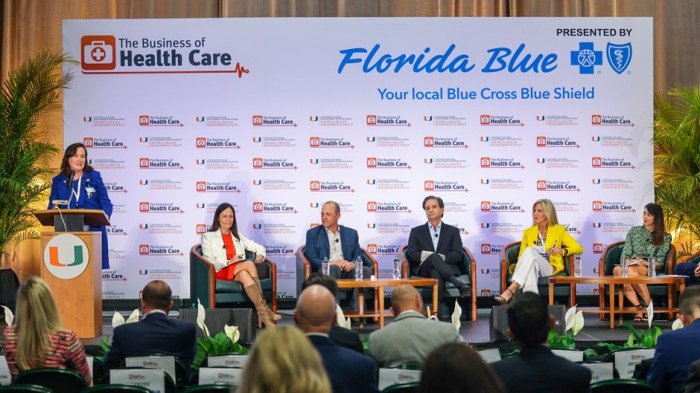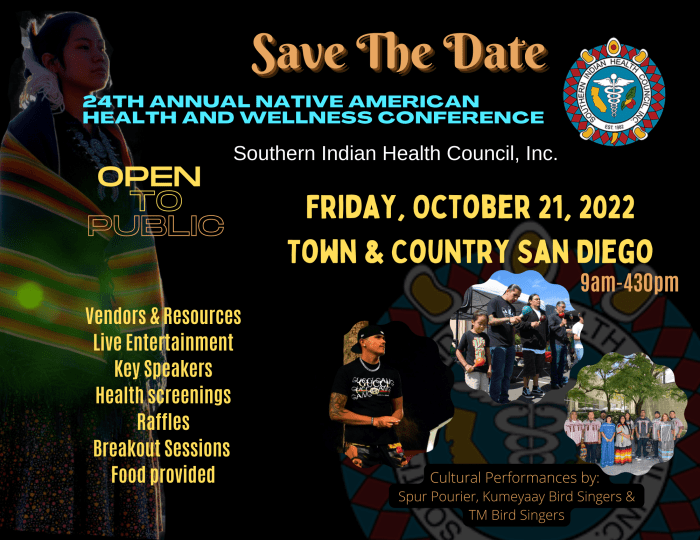Health cons, a disturbing trend that preys on vulnerabilities, are becoming increasingly sophisticated. From fraudulent medical treatments to fake cures, these deceptive practices can have devastating consequences for individuals and society as a whole. These scams often target those seeking relief from chronic illnesses or those desperate for a miracle cure.
Understanding the tactics employed by health con artists is crucial for protecting ourselves and our loved ones. By recognizing warning signs, adopting critical thinking, and staying informed, we can combat this growing threat and ensure the integrity of the healthcare system.
Health Con

A health con, also known as a health scam, is a deceptive scheme designed to exploit individuals’ health concerns and vulnerabilities for financial gain. These schemes can take various forms, ranging from fraudulent medical products and treatments to fake charities and insurance scams.
Examples of Health Cons
Health cons are a pervasive problem, with numerous examples surfacing regularly. Here are some notable instances:
- Fake Cancer Cures:Unscrupulous individuals often prey on cancer patients with promises of miracle cures that are scientifically unproven and potentially harmful.
- Weight Loss Scams:Promising rapid weight loss through dubious products or methods, these schemes often involve exaggerated claims and misleading testimonials.
- Dietary Supplement Fraud:Many dietary supplements marketed as health boosters lack scientific evidence to support their claims, with some even containing harmful ingredients.
- Medical Identity Theft:Criminals may steal personal health information to obtain medical services or medications fraudulently, leading to financial and medical consequences for victims.
Motivations Behind Health Cons
The primary motivation behind perpetrating health cons is financial gain. Scammers exploit people’s desperation for health solutions, often targeting individuals with chronic illnesses or those seeking to improve their well-being.
Impact of Health Cons
Health cons have a detrimental impact on individuals and society:
- Financial Loss:Victims often lose significant sums of money on fraudulent products or services, exacerbating their financial burden.
- Health Risks:Using unproven treatments can lead to health complications or worsen existing conditions, potentially delaying proper medical care.
- Erosion of Trust:The prevalence of health cons can erode public trust in healthcare providers and legitimate medical institutions.
- Strain on Healthcare Systems:Fraudulent claims and unnecessary treatments can place a strain on healthcare resources, diverting funds and attention away from genuine needs.
Types of Health Cons

Health cons are deceptive practices that exploit people’s health concerns and vulnerabilities to gain financial or other benefits. They can take many forms, targeting individuals, families, and communities. Understanding the various types of health cons is crucial for protecting oneself and others from falling prey to these scams.
Health Insurance Scams
Health insurance scams are designed to deceive people into paying for unnecessary or nonexistent insurance coverage. These scams often involve fraudulent marketing tactics, false promises of coverage, and pressure tactics to enroll quickly.
Common Characteristics:
- Promises of Low Premiums:Scammers may offer incredibly low premiums, making the offer seem too good to be true.
- High-Pressure Sales Tactics:They may use aggressive sales tactics to pressure potential customers into signing up immediately, often without allowing time to review the policy details.
- Misleading Marketing:They may use deceptive marketing materials, such as fake endorsements from reputable organizations, to create a false sense of legitimacy.
Examples:
- Fake Medicare Advantage Plans:Scammers may offer fake Medicare Advantage plans that don’t cover the services they claim to offer.
- “Free” Health Insurance Offers:They may advertise “free” health insurance but require personal information or enrollment fees.
Medical Device Scams
Medical device scams involve the sale of ineffective or dangerous medical devices, often marketed as miracle cures or treatments for serious conditions. These devices may not have been approved by regulatory bodies, and their claims may be based on false or misleading information.
Common Characteristics:
- Unproven Claims:Scammers may make exaggerated claims about the effectiveness of the device, often using testimonials from unknown or paid actors.
- Lack of Scientific Evidence:The device may not have undergone rigorous scientific testing or have been approved by regulatory bodies.
- High Costs:The device may be priced exorbitantly, especially considering its lack of proven effectiveness.
Examples:
- Magnetic Bracelets for Pain Relief:Scammers may claim that magnetic bracelets can cure various health conditions, despite the lack of scientific evidence to support these claims.
- “Miracle” Weight Loss Devices:They may market devices that promise rapid and effortless weight loss, often without requiring any effort or lifestyle changes.
Health Product Scams
Health product scams involve the sale of ineffective or dangerous dietary supplements, herbal remedies, or other products marketed as health cures. These products may contain harmful ingredients or may not be properly labeled or regulated.
Common Characteristics:
- Claims of Curing Serious Diseases:Scammers may claim that their products can cure cancer, diabetes, or other serious health conditions, which is often false.
- Misleading Labels and Packaging:The product may be labeled as “natural” or “organic” but contain harmful or unproven ingredients.
- Lack of Regulatory Approval:The product may not have been approved by regulatory bodies or may have been recalled due to safety concerns.
Examples:
- “Miracle” Weight Loss Pills:Scammers may claim that their pills can help you lose weight quickly and easily, without any need for diet or exercise.
- Unproven Herbal Remedies:They may market herbal remedies for conditions like cancer or Alzheimer’s disease, despite the lack of scientific evidence to support their claims.
Medical Billing Scams
Medical billing scams involve fraudulent billing practices, such as charging for services that were not provided, inflating prices, or billing for services that were not authorized. These scams can result in significant financial losses for patients.
Navigating the world of health information can be tricky, especially when encountering misleading claims and potential “health cons.” It’s essential to rely on credible sources, like Health First Holmes Regional Medical Center , for accurate and reliable health information. By staying informed and critical, we can avoid falling prey to deceptive practices and prioritize our well-being.
Common Characteristics:
- Unnecessary Procedures:Scammers may recommend unnecessary procedures or tests to increase their profits.
- Upcoding:They may charge for more expensive services than were actually provided.
- Duplicate Billing:They may bill patients multiple times for the same service.
Examples:
- “Phantom” Billing:Scammers may bill patients for services that were never performed.
- Unnecessary Tests:They may order unnecessary blood tests, X-rays, or other diagnostic tests to increase their revenue.
Health Care Provider Scams
Health care provider scams involve fraudulent activities by doctors, nurses, or other health care professionals. These scams can include providing substandard care, falsifying medical records, or engaging in insurance fraud.
Common Characteristics:
- Providing Substandard Care:Scammers may provide inadequate or negligent care to patients, resulting in harm or injury.
- Falsifying Medical Records:They may alter or fabricate medical records to conceal their negligence or to justify unnecessary procedures.
- Insurance Fraud:They may submit false insurance claims for services that were not provided or for patients who did not receive care.
Examples:
- “Pill Mills”:These are clinics that illegally prescribe opioids and other controlled substances to patients, often without a legitimate medical need.
- “Ghost” Surgeries:Scammers may perform surgeries on patients without their knowledge or consent.
Other Types of Health Cons
There are other types of health cons that don’t fit neatly into the categories above. These can include:
- “Free” Health Screenings:Scammers may offer free health screenings but use the opportunity to gather personal information or to sell unnecessary products.
- “Miracle” Cures:They may claim to have a cure for a disease that has no known cure, often using false testimonials and misleading marketing tactics.
Recognizing Health Cons
It’s important to be vigilant and recognize the warning signs of potential health cons. Understanding the tactics used by scammers can help you protect yourself and make informed decisions about your health.
Key Warning Signs and Red Flags
Knowing the warning signs and red flags associated with health cons can help you identify potential scams. These signs can vary, but some common indicators include:
- Promises of quick and easy cures: Be wary of claims that a product or treatment can cure any illness or condition without any evidence or scientific backing.
- Testimonials without scientific evidence: Testimonials alone are not reliable indicators of effectiveness. Look for scientific studies and evidence from reputable sources.
- Pressure to make immediate decisions: Scammers often use high-pressure tactics to push you into making decisions without giving you time to research and consult with your doctor.
- Claims of being a secret or miracle cure: Be skeptical of products or treatments marketed as secret or miracle cures, especially if they are not backed by scientific evidence.
- Lack of licensing or credentials: Verify the credentials and licensing of any healthcare professional or company you are considering.
- High-priced products or treatments: Be cautious of products or treatments that are significantly more expensive than conventional options.
- Claims of a cure for a condition that is not scientifically proven: Be skeptical of any product or treatment that claims to cure a condition that has no known cure.
- Promises of weight loss without lifestyle changes: Be wary of products or treatments that promise rapid weight loss without requiring any effort on your part.
Protecting Yourself from Health Cons
There are several practical steps you can take to protect yourself from health cons:
- Consult with your doctor: Before trying any new product or treatment, consult with your doctor to ensure it is safe and effective for you.
- Research products and treatments: Before making any decisions, do your research on the product or treatment, looking for scientific evidence and reputable sources.
- Be skeptical of claims that sound too good to be true: If a product or treatment promises miraculous results, it is likely a scam.
- Check for licensing and credentials: Verify the credentials and licensing of any healthcare professional or company you are considering.
- Be aware of pressure tactics: If someone is pressuring you to make a decision without giving you time to research, it is likely a scam.
- Avoid making decisions based on testimonials alone: Testimonials alone are not reliable indicators of effectiveness. Look for scientific studies and evidence from reputable sources.
- Report scams to the appropriate authorities: If you believe you have been the victim of a health con, report it to the appropriate authorities.
The Role of Critical Thinking and Skepticism
Critical thinking and skepticism are essential tools for protecting yourself from health cons. When encountering health-related information or offers, ask yourself the following questions:
- What is the source of the information?Is it a reputable source?
- What evidence supports the claims?Is there scientific evidence to back up the claims?
- What are the potential risks and benefits?Are the potential risks worth the potential benefits?
- Does the information seem too good to be true?If it sounds too good to be true, it probably is.
- Is the information consistent with what you know about health and medicine?
“Always be skeptical of claims that sound too good to be true, especially when it comes to your health.”
The Impact of Health Cons

Health cons can have devastating consequences for individuals and communities. They exploit people’s vulnerabilities and can lead to a range of negative outcomes, including financial ruin, emotional distress, and physical harm.
Financial Repercussions
Falling victim to a health con can have severe financial implications. Victims may lose their life savings, their homes, or even be forced into debt.
- For example, individuals may be lured into investing in fake treatments or products that promise miraculous cures.
- They may be pressured into paying for unnecessary medical procedures or treatments, often with inflated prices.
- In some cases, victims may be forced to take out loans or sell their assets to cover the costs of the con.
Emotional Distress
Health cons can also cause significant emotional distress. Victims may feel betrayed, humiliated, and ashamed.
- They may experience feelings of anxiety, depression, and hopelessness.
- The emotional impact of a health con can be particularly severe for those who are already struggling with a health condition.
- The experience can lead to a loss of trust in healthcare professionals and systems.
Physical Harm
In some cases, health cons can lead to physical harm. Victims may be exposed to dangerous substances or treatments that are not effective.
- For example, they may be given fake medications that contain harmful ingredients.
- They may be persuaded to delay or forgo legitimate medical treatment, which can have serious consequences.
- In extreme cases, health cons can even lead to death.
Impact on Trust in Healthcare Systems and Information
Health cons can erode trust in healthcare systems and information. Victims may become skeptical of legitimate medical advice and treatments.
- This can make it difficult for them to access the care they need and can lead to further health problems.
- The spread of misinformation about health cons can also make it more difficult for legitimate healthcare providers to communicate with their patients.
Combating Health Cons

Protecting yourself from health cons requires a multifaceted approach that combines proactive measures, awareness, and reporting mechanisms. By understanding the tactics employed by scammers, you can equip yourself with the knowledge and tools necessary to safeguard your well-being.
Navigating the world of health insurance can be a real conundrum, especially when you’re trying to find the best plan for your needs. For federal employees, the good news is that there are a range of federal employee health benefits plans to choose from, offering different coverage options and costs.
While it can feel like a maze, taking the time to compare plans and understand your options can help you find the best fit and avoid a health insurance conundrum.
Preventing Health Cons
Prevention is the most effective strategy for combating health cons. By taking proactive steps, you can minimize your vulnerability to these schemes.
- Be skeptical of unsolicited offers: Health cons often involve unsolicited contact through phone calls, emails, or social media. Be wary of offers that seem too good to be true, especially if they involve pressure to make an immediate decision.
- Verify information: Before making any decisions based on information received from an unknown source, independently verify the claims through reputable sources like government websites, medical organizations, or consumer protection agencies.
- Be cautious of online interactions: Exercise caution when interacting with individuals or organizations online, especially those claiming to offer miracle cures or treatments. Be wary of websites that lack contact information or appear unprofessional.
- Consult with trusted healthcare providers: For any health concerns, consult with your doctor or a qualified healthcare professional. They can provide accurate information and guide you towards legitimate treatment options.
Reporting Suspected Health Cons
Reporting suspected health cons is crucial for protecting others and holding perpetrators accountable.
- Contact the appropriate authorities: Depending on the nature of the scam, you can report it to agencies like the Federal Trade Commission (FTC), the Food and Drug Administration (FDA), or your local consumer protection agency.
- Document evidence: Keep detailed records of any interactions with the scammer, including dates, times, communication channels, and any promises made. This documentation will be valuable when reporting the scam.
- Spread awareness: Share your experience with others to raise awareness about health cons and prevent them from becoming victims.
The Role of Education and Awareness
Education and awareness play a pivotal role in mitigating the prevalence of health cons.
- Public awareness campaigns: Government agencies and consumer protection organizations should conduct public awareness campaigns to educate the public about common health cons and provide guidance on how to protect themselves.
- Community outreach programs: Community organizations can play a vital role in reaching vulnerable populations and providing education on health cons.
- Media literacy: Individuals should develop critical media literacy skills to discern legitimate health information from deceptive marketing tactics.
Case Studies

Learning from real-world examples of health cons can provide valuable insights into their tactics, impact, and potential countermeasures. Examining these cases helps us understand the complexities of these scams and develop strategies for prevention.
Notable Health Cons
This section delves into specific instances of health cons, analyzing their methods, outcomes, and lessons learned.
- The “Miracle Cure” Scam:This common con involves promoting a product or treatment that claims to cure a serious illness, often with exaggerated or false claims. One example is the “miracle cure” for cancer that was marketed in the 1990s. The product, a herbal supplement, was promoted as a guaranteed cure, leading many desperate patients to forgo conventional treatments and spend large sums of money.
The product was eventually found to be ineffective and potentially harmful, resulting in numerous lawsuits and regulatory action.
- The “Fake Doctor” Scam:This con involves individuals posing as medical professionals, often with fake credentials or certifications. They may offer medical services, prescribe medications, or even perform surgeries. One infamous case involved a man in the United States who operated a fake medical clinic for over a decade, treating patients for various ailments.
He eventually faced multiple charges, including practicing medicine without a license, and was sentenced to prison.
- The “Medical Identity Theft” Scam:This con involves the theft of an individual’s medical information, which can be used to access healthcare services, obtain prescription drugs, or commit insurance fraud. In one case, a group of individuals stole the medical identities of thousands of people, using the information to obtain expensive medical equipment and medications.
The stolen identities were then sold on the black market, leading to significant financial losses for both individuals and insurance companies.
Lessons Learned
Analyzing these case studies reveals key lessons for preventing future health cons:
- Be wary of miracle cures:There is no magic bullet for serious illnesses. Be skeptical of claims that sound too good to be true.
- Verify credentials:Always check the credentials of healthcare providers, including doctors, nurses, and therapists.
- Protect your medical information:Be careful about sharing your medical information online or with strangers.
- Report suspicious activity:If you suspect a health con, report it to the appropriate authorities, such as the police or the Federal Trade Commission.
Key Case Studies
| Con | Perpetrator | Victims | Consequences |
|---|---|---|---|
| “Miracle Cure” for Cancer | Unknown | Cancer patients seeking alternative treatments | Financial loss, potential harm to health, legal action |
| “Fake Doctor” Clinic | John Doe | Patients seeking medical care | Medical malpractice, legal charges, imprisonment |
| Medical Identity Theft | Organized crime group | Individuals whose medical identities were stolen | Financial loss, identity theft, insurance fraud |
The Future of Health Cons

The world of health cons is constantly evolving, mirroring the rapid advancements in technology and the increasing reliance on digital platforms for health information and services. Understanding the future of health cons is crucial to effectively combatting them and protecting individuals from exploitation.
Emerging Trends and Evolving Tactics
The landscape of health cons is continuously evolving, with new tactics emerging to exploit vulnerabilities and capitalize on changing trends. Here are some key trends:
- Sophisticated Social Engineering:Cons are becoming more sophisticated, utilizing social engineering techniques to gain trust and manipulate individuals. This involves leveraging social media, online forums, and personalized messaging to create a sense of urgency, fear, or hope, making individuals more susceptible to scams.
Health conventions are a great way to learn about the latest trends in wellness and beauty. You can find everything from healthy food options to the latest skincare innovations. And if you’re looking for a great deal on beauty products, check out ulta beauty discount codes.
You’ll be sure to find something you love at a price you can afford. Of course, always remember that health and beauty are about more than just products, so make sure you prioritize a healthy lifestyle and a positive mindset.
- Exploitation of Emerging Technologies:Health cons are increasingly utilizing emerging technologies like artificial intelligence (AI), blockchain, and virtual reality (VR) to enhance their reach and effectiveness. For instance, AI-powered chatbots can mimic human interactions, making it harder to identify fraudulent activities.
- Targeting Specific Demographics:Health cons are becoming more targeted, focusing on specific demographics with unique vulnerabilities, such as the elderly, individuals with chronic illnesses, or those seeking alternative therapies.
- Focus on Digital Platforms:The shift towards online health information and services presents new avenues for health cons. Fraudulent websites, fake online pharmacies, and social media scams are becoming increasingly common, exploiting individuals’ trust in digital platforms.
The Impact of Technology on Health Cons
Technology is a double-edged sword, offering both opportunities and challenges in the fight against health cons. While technology can be used to raise awareness, educate individuals, and improve detection, it also provides tools for scammers to operate more effectively.
- Increased Accessibility:The internet and mobile devices have made it easier for scammers to reach a wider audience and spread their fraudulent messages. This accessibility also makes it more difficult for authorities to track and stop their activities.
- Data Breaches and Identity Theft:Data breaches and identity theft can be exploited by scammers to create realistic and convincing cons. They can use stolen personal information to impersonate medical professionals or organizations, making it harder for individuals to discern the truth.
- Deepfakes and AI-Generated Content:Advancements in AI have led to the emergence of deepfakes, synthetic media that can be used to create convincing fake videos and audio recordings. This technology could be used to create fraudulent health information or impersonate medical professionals, further blurring the lines between truth and deception.
Adapting to Future Health Cons
Staying ahead of evolving health cons requires a proactive approach, encompassing both individual and institutional efforts.
- Increased Awareness and Education:Educating individuals about common health cons, recognizing red flags, and promoting critical thinking is crucial. This can be achieved through public awareness campaigns, educational materials, and online resources.
- Strengthening Regulatory Frameworks:Governments and regulatory bodies need to adapt existing regulations and create new frameworks to address the evolving nature of health cons. This includes strengthening consumer protection laws, regulating online platforms, and collaborating with international organizations.
- Leveraging Technology for Prevention:Technology can be used to develop innovative tools and strategies for preventing and detecting health cons. This includes developing AI-powered detection systems, creating secure online platforms, and promoting digital literacy.
- Collaborative Efforts:Collaboration between law enforcement agencies, healthcare organizations, technology companies, and consumer advocacy groups is essential to combatting health cons effectively. Sharing information, coordinating investigations, and developing joint strategies are key to tackling this complex issue.
Conclusion

As health cons continue to evolve, vigilance and education are essential in safeguarding ourselves and our communities. By staying informed about emerging trends, reporting suspected scams, and promoting awareness, we can work collectively to mitigate the impact of these deceptive practices and ensure access to legitimate healthcare.
Quick FAQs
What are some common examples of health cons?
Common examples include fake cancer cures, miracle weight-loss products, and fraudulent medical devices.
How can I report a suspected health con?
Contact your local consumer protection agency, the Federal Trade Commission, or the Food and Drug Administration.
What are some tips for avoiding health cons?
Be skeptical of claims that sound too good to be true, research treatments thoroughly, and consult with a trusted healthcare professional.